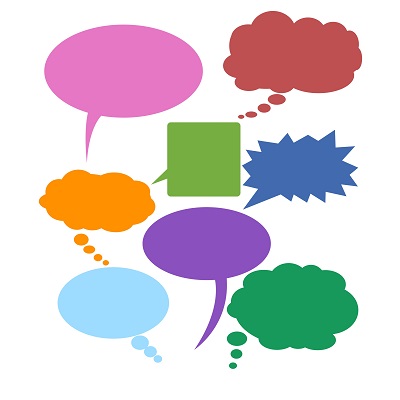What We're Reading Now
There’s a Reason Self-Compassion is So Hard to Achieve
23 January 2018
Barbara read Self-Compassion: The Proven Power of Being Kind to Yourself by Kristen Neff and was reminded how important it is to pay attention to how you talk to yourself.
Tags: barbara read, communication, courage, mindfulness, self-compassion, self-talk, ted
Do you ever talk badly to yourself? The words in our heads are often negative, bossy put downs. I’m too tall/short, fat/skinny, nice/mean, talkative/quiet, emotional/reserved, messy/ compulsive or worse—on and on and on. Full sentences can be—Why did I do/say that? I’m no good with numbers. I’m afraid of _______. I’m sad about ________. I should eat more fruits and vegetables.
Allison first blogged about Kristen Neff’s TEDx Talk, article, and web site on 6 October 2015. Recently, a friend of mine suggested her book, Self-Compassion, and I found myself nodding my head, reading it quickly, and realizing I need to stop being so hard on myself for being so hard on myself!
Neff says this habit of talking badly to myself is not the character flaw I’ve always assumed it was. She says, “It’s very important to stop condemning yourself for these patterns, fruitless as they may be. The only way to truly have compassion for yourself is to realize that these neurotic ego cycles are not of your own choosing, they are natural and universal.” It was a process that kept our species alive for many thousands of years.
We pay more attention to harsh comments from ourselves and others than we do to supportive statements. “Research has demonstrated that our brains have a negativity bias, meaning we’re more sensitive to negative than to positive information….In the natural environment, negative information usually signals a threat. If we don’t notice that crocodile lurking in the banks of the river immediately, we’ll soon become his lunch….Positive information isn’t as crucial to immediate survival as it is to long-term survival. Noticing that the river has fresh, clean water is important, especially if you’re thirsty or deciding on a place to camp, but there’s not the same urgency to act on these data. Thus, our brains give less time and attention to positive than to negative information.”
In modern times, most people don’t have as many imminent dangers, and yet we still concentrate on the negative. Some people think if they don’t beat up on themselves, they’ll become laggards and never get anything done at all. Neff says the research proves this is not true. We get more and better quality work done if we are encouraging to ourselves.
One way to stop this mental self-abuse is mindfulness, which every time I come to the word, I ask myself again—Now, what does that mean? I have read enough books on it and listened to enough videos on line that I shouldn’t have to ask this question, but because doing it is so hard for me, I have to stop and think every time. (I think this might actually be a form of mindfulness for me!)
Neff describes mindfulness as paying attention to what you are feeling and thinking about. When you are criticizing yourself, try to separate from the thought just a touch and notice that you are having the thought. For example, I teach people how to give feedback, but the truth is that I hate having to give it. So, when I think—I wish I didn’t have to give this person negative feedback. It’s not fair that I have to do it. If she’d just behave, I wouldn't have to. I’m such a wimp. Other people don’t have trouble doing this. Why do I?
If I can pause, see what I’m doing, and say instead— Barbara, I don’t blame you for feeling sorry for yourself about this issue. I understand it is difficult and you wish the person was more self-aware, so you wouldn’t have to deliver the feedback in the first place. You are going through a tough patch. I love you and will help you take care of yourself while you get ready to have this difficult conversation. You can do this.

Sometimes this is enough, but other times I have to have a second conversation with myself like this—Barbara, it might be hard, but she probably doesn’t understand how her behavior is impacting you, and there’s a good chance she might try to change if you can be brave enough to talk to her. And if she doesn’t change, you’ll feel better that you found your courage and tried to talk to her.
Neff is right. When I am kind with my words in my head instead of my normal negative self-talk—Buck up. Everyone has troubles. Just look at so and so who has it so much worse than you do—I do feel better and get the feddback delivered rather than putting it off.
In my last blog post, Meditate Even if it Bores You, I talked about focused breathing, the term I like to use instead of meditation. I’m still doing it and have added practicing self-compassion to the process. Both are helping me to be happier, have some tough conversations, and get more done.







Comments
Our Comment Policy:
Our blog posts are only half of the conversation. What our readers have to say is equally important to us, and we're grateful for all the comments that continue the dialog.
To ensure that the discussion here is as useful as possible to all of our readers, please be respectful of our contributors and refrain from harassing, threatening and/or vulgar language. We reserve the right to screen and remove any comments from the site. If you have a question about a comment or want to discuss our policy, please contact us. We'll talk it over.
There are no comments for this entry yet.